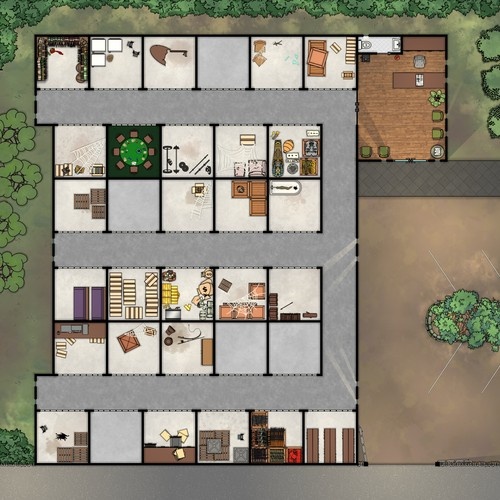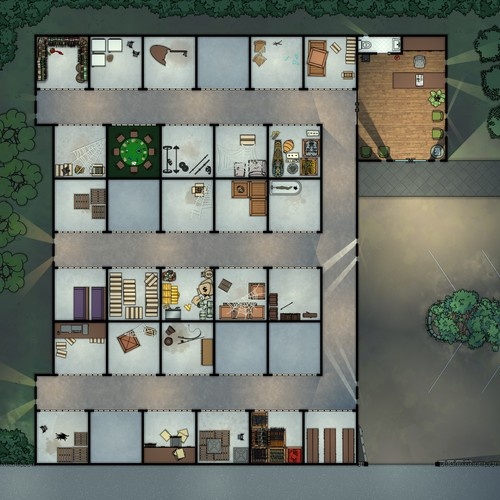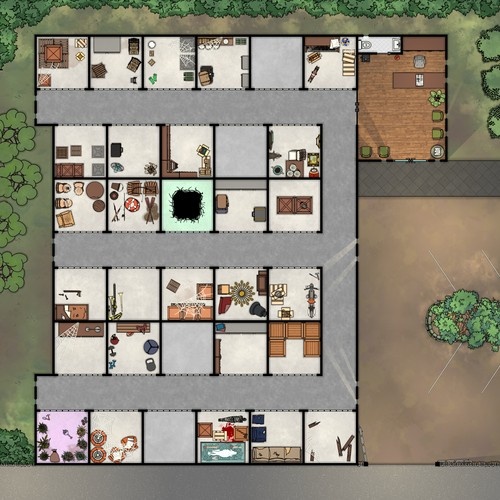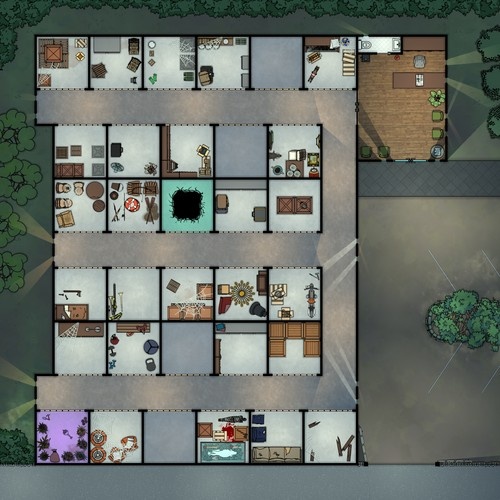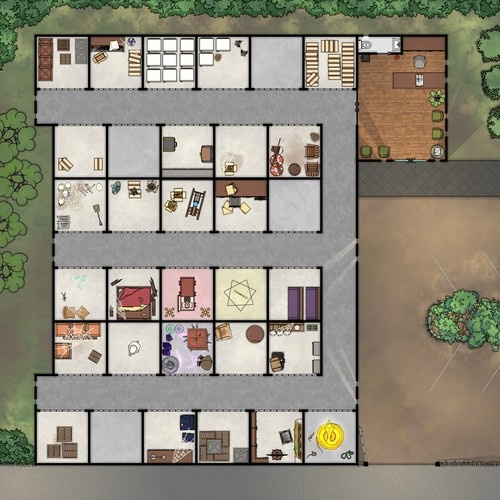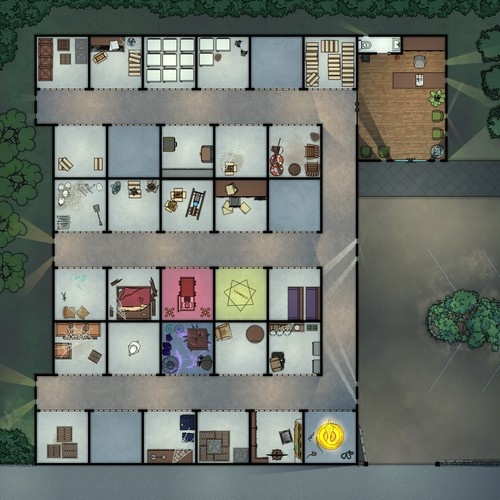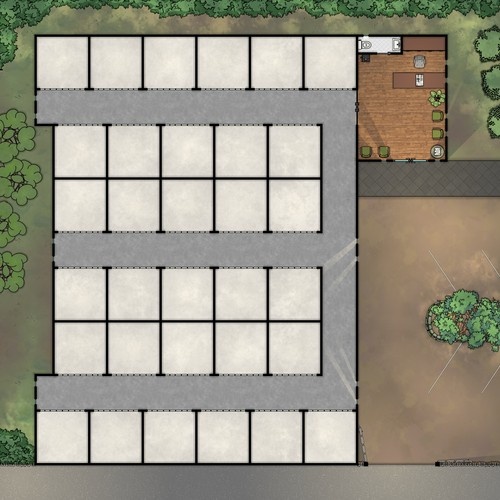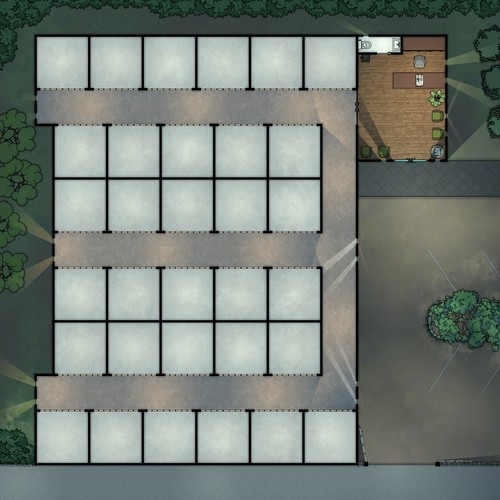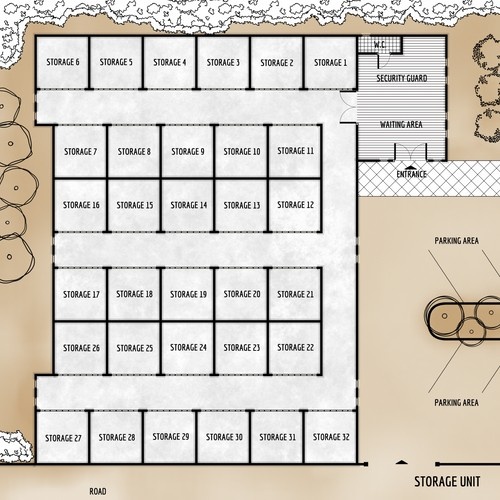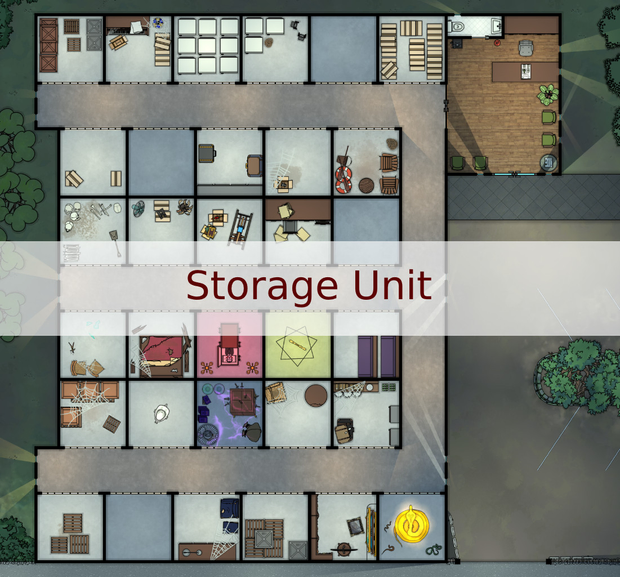Why does the facility manager have keys to units whose renters never appear during business hours, and what's behind those climate-controlled spaces that require power sources beyond standard electrical service? Which storage bays emit sounds that maintenance claims are just settling foundations, and why do certain units accumulate rental fees despite no record of payment? What's locked in that corner unit that even the owner refuses to discuss?
Follow Cthulhu Architect on BlueSky!In the future we would have total storage, all of us would, our media libraries would dematerialise and just float above us, books would no longer sit on the shelves reminding us that we had not read them, music and TV and film formats would no longer clutter the den reminding us of all we had not yet listened to or watched.
― Joshua Cohen, Book of Numbers
The fluorescent lights flickered overhead, casting uneven shadows across the numbered doors that lined the silent hallway. Renata Ashworth clutched the key to unit 47 tightly in her palm, feeling its edges dig into her skin as she walked past rows of identical padlocks.
She’d inherited the unit from her uncle Elijah after his unexpected passing---a man she barely knew beyond holiday cards and the occasional phone call. “Just some old family heirlooms,” the lawyer had said dismissively. “Nothing valuable, but he was insistent you receive them.”
The first thing that struck her was the smell when she rolled up the metal door---not musty abandonment as expected, but something sharper, like ozone and copper pennies. The unit was meticulously organized: labeled boxes stacked in precise columns, furniture draped in pristine white sheets, and at the center, a single steamer trunk bound with straps that seemed newer than everything else.
Renata noticed something odd about the space---despite being a standard ten-by-ten unit, the back wall seemed… further away than it should be. She pulled the chain on the overhead bulb, but the light couldn’t quite reach the rear corners, as if the darkness there was consuming it.
Inside the trunk she found leather-bound journals filled with her uncle’s cramped handwriting, diagrams of geometric patterns that hurt her eyes if she looked too long, and photographs of storage facilities spanning decades---always unit 47, always with the same trunk visible in frame, though the buildings around it changed.
The last entry in the final journal was dated three days before Elijah’s death: “They’re running out of space to hide. I’ve moved it six times now. The unit number must remain consistent---they find it through numerical resonance. I’m sorry for what comes next, Renata. You were always the sensitive one. You’ll know what to do when the walls begin to thin.”
That night in her apartment, Renata woke to the sound of her phone chiming with a notification. The storage facility’s automated system: “Movement detected in Unit 47.” On her screen, the security feed showed the trunk’s lid slowly rising, though no one was there to lift it. The timestamp read 3:47 AM.
By morning, she’d convinced herself it was a dream---until she received another notification. Unit 47’s lock had been breached. When she arrived, the manager was apologetic. “System glitch. Your unit’s fine, still locked.” But when Renata opened it, she found only empty space where the trunk had been, and on the concrete floor, a single key identical to hers, except for the number etched into its surface: 48.
